Trump says Iran has US nuclear proposal, must act quickly
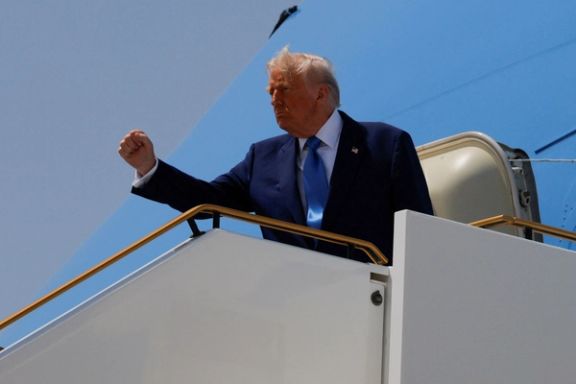
US President Donald Trump said on Friday that Iran has received a formal American proposal for a nuclear agreement and warned Tehran to respond swiftly or face consequences.

US President Donald Trump said on Friday that Iran has received a formal American proposal for a nuclear agreement and warned Tehran to respond swiftly or face consequences.
“They have a proposal. More importantly, they know they have to move quickly or something bad—something bad's going to happen,” Trump told reporters aboard Air Force One after leaving the United Arab Emirates.
Axios reported Thursday that the written proposal was delivered during the fourth round of indirect talks between US and Iranian officials last Sunday in Muscat, Oman. It was the first formal offer made by the Trump administration since negotiations began in April, Axios cited US and diplomatic sources saying.
The document, handed over by White House envoy Steve Witkoff, outlines terms for a civilian nuclear program, with specific provisions for international monitoring and verification.
Iranian Foreign Minister Abbas Araghchi reportedly took the proposal back to Tehran for review by Supreme Leader Ali Khamenei, President Masoud Pezeshkian, and other senior officials.
Witkoff described the proposal as “elegant” and “very big” in a recent briefing to the United Nations Security Council, according to Axios, but acknowledged that more work was needed. A fifth round of talks has not yet been scheduled.
Iran has responded positively in public statements. Ali Shamkhani, a senior adviser to Khamenei told NBC News that Tehran is ready to stop enriching uranium to weapons-grade levels, reduce its stockpiles and accept inspections—if the United States lifts all sanctions.
US Secretary of State Marco Rubio, speaking Thursday from Turkey, said the diplomatic window remains open but warned the decision ultimately rests with Iran’s leadership.
“In the end, the decision lies in the hands of one person, and that's the Supreme Leader in Iran, and I hope he chooses the path of peace and prosperity, not a destructive path,” Rubio told reporters.
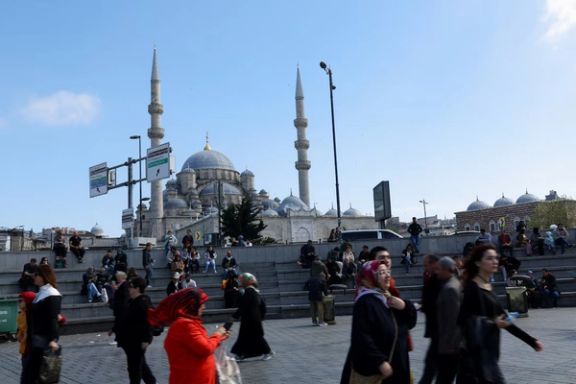
Iran and the three European signatories to the 2015 nuclear deal held talks in Istanbul to discuss the state of nuclear and sanctions-lifting negotiations, Iranian Deputy Foreign Minister Kazem Gharibabadi said on Friday.
Gharibabadi said he and fellow Deputy Foreign Minister Majid Takht-Ravanchi hosted the political directors of the UK, France, and Germany for discussions aimed at advancing diplomatic efforts.
“Iran and the E3 are determined to sustain and make best use of diplomacy,” he wrote on X. “We will meet again, as appropriate, to continue our dialogue.”
A German diplomatic source told Iran International ahead of the meeting that discussions would focus on Iran’s nuclear program, but stressed, “These are not negotiations.” The source said Germany was represented by Dominik Mutter, Political Director at the Federal Foreign Office.
Earlier this week, Iranian Foreign Minister Abbas Araghchi said Iran remained open to talks with Europe, “even if their own policies have led to some isolation in these negotiations.”
Few details have emerged from the meeting, and no major breakthroughs have been announced.
Under the UN resolution that endorsed the 2015 nuclear deal, the three European signatories – Britain, France, and Germany – have the authority to reimpose UN sanctions on Iran through a mechanism known as the "snapback," if they determine that Tehran is not complying with the agreement.
Diplomats told Reuters that the E3 could move to trigger the snapback mechanism as early as August if no significant progress is made in negotiations. The deadline to do so under the resolution is October 18.
Separately, US Secretary of State Marco Rubio met Friday in Istanbul with the national security advisors of the UK, France, and Germany to discuss both Iran and the war in Ukraine, according to a US official and a Reuters witness.
The United States and Iran have held four rounds of indirect nuclear negotiations mediated by Oman since April. Both sides have described the talks as “constructive,” though no formal agreement has been reached.
Meanwhile, during his visit to Persian Gulf states this week, US President Donald Trump said Iran had “sort of agreed” to American terms and declared, “We’re getting very close to a deal.” Trump reiterated that Iran must never obtain a nuclear weapon and warned Tehran faces either “a very, very nice step” or “a violent step — the violence like people haven’t seen before.”
On Friday, Trump added that Iran has received a formal US proposal and must act quickly. Axios reported that the written proposal was handed to Iranian negotiators during the fourth round of talks in Oman and taken back to Tehran for consultation with senior officials.
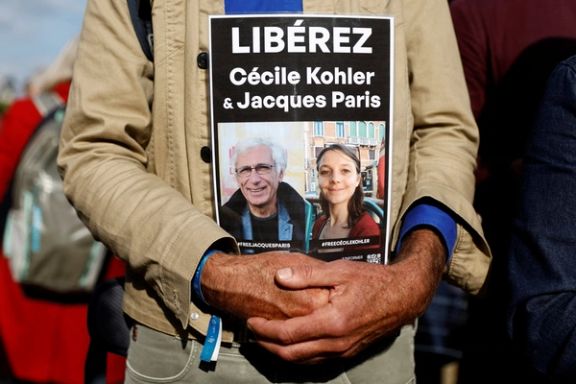
France has filed a case against Iran at the International Court of Justice (ICJ), accusing Tehran of unlawfully detaining two French citizens for three years and violating international law, the French foreign minister said on Friday.
Cécile Kohler and Jacques Paris were arrested in May 2022 during a tourist trip to Iran. Both were charged with espionage, which they deny. They remain in detention in Iran’s Evin prison.
“They have been held hostage… detained in appalling conditions that amount to torture,” French Foreign Minister Jean-Noël Barrot told France 2 television. He said Iran had denied France’s requests for consular access.
The case was formally filed on Friday morning in The Hague, France’s foreign ministry confirmed.
Paris argues that Iran has violated the Vienna Convention, which guarantees consular rights for foreign nationals. “France is acting to defend its citizens and uphold international law,” ministry spokesperson Christophe Lemoine said on Thursday.
Kohler, a teacher, and Paris, her partner, are the last known French citizens held in Iran. French President Emmanuel Macron has described them as “state hostages.”
France and other European Union members accuse Iran of practicing “hostage diplomacy” — detaining foreigners to pressure Western governments.
Iran denies the accusation. Its officials say the arrests followed legal procedures and reject claims of mistreatment.
The legal move comes as Iranian officials are due to meet with European diplomats in Turkey for talks on Iran’s nuclear programme.
Rights groups, including Amnesty International, have reported on the use of forced confessions in Iran and poor conditions in its prisons. Iran has broadcast videos of Kohler and Paris appearing to confess. France has called the footage coerced and unreliable.
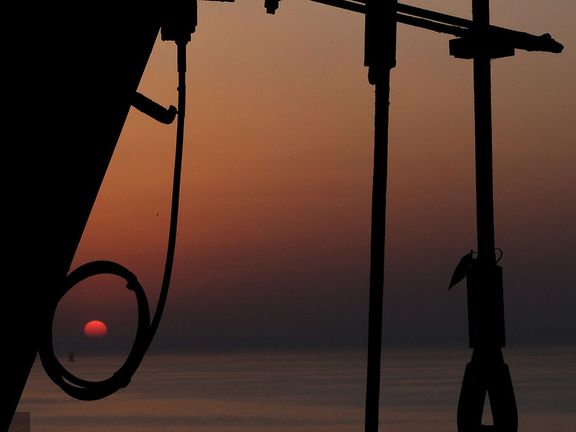
Iran is facing one of its bleakest economic outlooks in years, data published by the International Monetary Fund (IMF) suggests, with inflation surging, fiscal deficit growing and nominal economy shrinking—all indicators of potential long-term instability.
Iran’s real GDP is set to grow by just 0.3% in 2025, the IMF's Regional Economic Outlook for the Middle East and Central Asia published this month projected.
That’s a sharp fall in its October 2023 estimate for this year of 3%.
The revision appears to reflect the tightening of US sanctions under President Donald Trump, who has promised to slash Tehran’s oil revenues and restrict its access to international finance.
In April alone, the Trump administration imposed eight new packages of sanctions targeting tankers and trading networks that facilitate the sale of Iranian oil. Between January and April 2025, imports from China—Iran’s primary oil buyer—fell to 1.38 million barrels per day (bpd), about 7 percent below the 2024 average.
The IMF estimates both production and exports to fall by 300,000 bpd in 2025. Independent energy analytics firms such as Kpler, Vortexa, and TankerTrackers have predicted a steeper drop, as much as 500,000 bpd.
Surplus narrows, capital flees
Iran’s total exports, including non-oil goods and services, is projected to decline by 16% this year to $100 billion, according to the IMF. Imports are expected to fall 10% to $98 billion, leaving a slim trade surplus of just $2 billion, compared to $10 billion last year.
Despite running trade surpluses in recent years, capital flight remains alarmingly high.
Iran’s Central Bank estimates that $14 billion exited the country in the last nine months of 2024. That comes atop $20 billion the year before. Since 2018, when Trump introduced his so-called maximum pressure campaign against Tehran.
Currency falls, economy shrinks
Perhaps the most shocking of IMF figures is those of Iran’s nominal GDP—which reflects the size of an economy in global terms. Iran’s nominal GDP will fall from $401 billion in 2024 to $341 billion this year, according to the report.
The primary reason behind this dramatic fall is the collapse of Iran’s currency, Rial, which lost nearly half its value in 2024.
While real GDP appears relatively stable domestically as it adjusts for inflation and ignores currency devaluation, the dollar-denominated figures reveal a steep contraction.
In 2000, Iran’s economy was larger than those of the United Arab Emirates, Turkey and Saudi Arabia. Today, all three have surpassed Iran, with GDPs more than three times that of Iran in the case of the latter two.
Prices soar, pockets empty
Adjusting for ever-rising prices in Iran, the IMF has upped its inflation estimate for 2025: from 37% in its last report to just above 43% in the latest.
Iran now ranks fourth in the world in inflation, beaten by Venezuela, Sudan, and Zimbabwe only.
Several factors are fueling the surge: the rial’s collapse, restricted access to foreign reserves, excessive domestic borrowing, and rising import costs under sanctions.
What next?
Most troubling for Iran’s government could be the IMF's estimate that the country would need oil prices to reach $163 per barrel just to balance its 2025 budget. That is more than double the current global average.
In its latest budget, the administration of president Masoud Pezeshkian has assumed daily oil exports of 1.85 million bpd at $67 per barrel. But the IMF expects actual exports to average just 1.1 million bpd, indicating a substantial shortfall.
This is a familiar story. Successive administrations in Iran have run deficits amounting to roughly one-third of total public spending, plugging the gap with heavy borrowing and money printing—both of which have fueled inflation and monetary instability.
The IMF projects Iran’s gross government debt to rise to just under 40% of GDP in 2025, and a couple of points above it in 2026 — troubling figures for an economy already under severe external pressure.
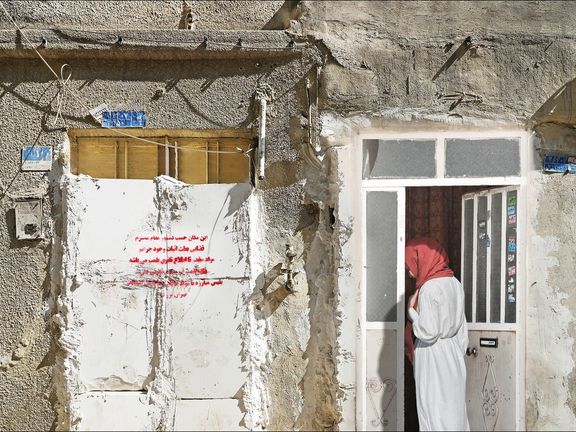
Online platforms for temporary marriage, or sigheh, in Iran give men access to an underground sex economy that - far from totally contradicting the ruling theocracy - flourishes with a certain religious blessing.
On messaging apps like Telegram, channels advertise “Islamic marriage services.”
The language is coded—halal sigheh, “marriage under sharia supervision,” or “regulated Islamic companionship” — but the business model is simple: pick, pay and meet.
Under Iran's Shi'ite Muslim legal code, men are legally permitted to enter into temporary marriages for a fixed period—ranging from minutes to years—without court approval or official registration.
These marriages automatically dissolve when the agreed-upon time expires.
Iran International encountered a functioning industry of religiously sanctioned pimping, one that exploits the legal ambiguity of sigheh to facilitate sex work. Many users are conned. But some are not.
While screenshots were translated from Farsi, no photos—even blurred ones—have been included in this report, as we could not verify whether the women pictured were genuinely behind the profiles used in these exchanges.
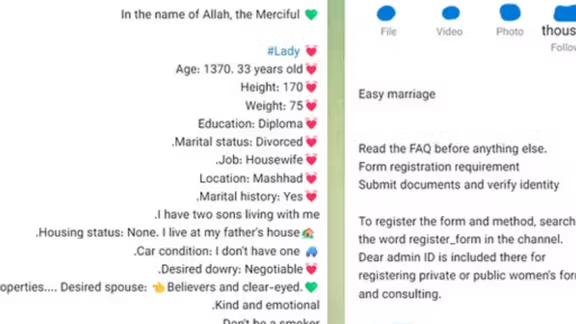
Iran International contacted several channels and in half the cases, different women responded from different numbers. One sent audio replies. Another agreed to meet in person—for a cash exchange, if a deposit was paid.
In another case, a woman offered options for a short-term arrangement and said she was working “with the support of a governmental office,” insisting that payment be made to their account first.
To obtain a woman’s contact information alone, clients are typically asked to pay between 3 million to 5 million rials (roughly $3.50 to $6 at current exchange rates). Full service arrangements labeled as “monthly sigheh contracts” range from 70 to 400 million rials ($83 to $476), with rates varying based on location, age or even height.
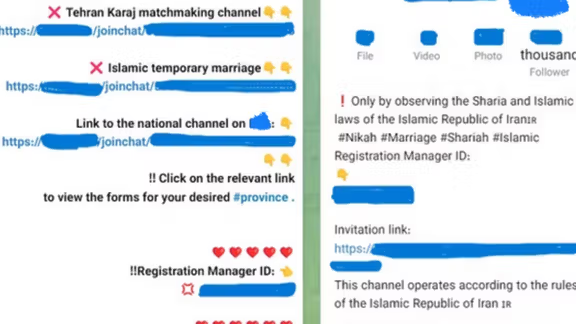
In one case in Iran International's investigation, a woman arranged to meet at a metro station in west Tehran after initial negotiations, with two rounds of fees—labeled as 'identification' and 'dowry'—required as conditions to be paid after the meeting.
“Bring the balance in cash,” she instructed. “After we talk, if you’re satisfied, we go somewhere.” Her tone was direct and businesslike. The transaction mirrored sex work in every way—except it was presented as a religious contract.
'Virginity guaranteed'
The channels involved do not describe sigheh as a sexual service. Instead, they variously frame it as a “pious alternative to sinful behavior”—“a way to support chaste women,” one wrote.
Listings often include physical traits, education level and place of residence. Some promise “virginity guaranteed.” Longer-term packages come with varying price tags—often higher for women labeled as educated or Tehran-based.
“We only use women who are under the protection of the Islamic Republic. No funny business. Everything is legal under sharia,” wrote another channel.
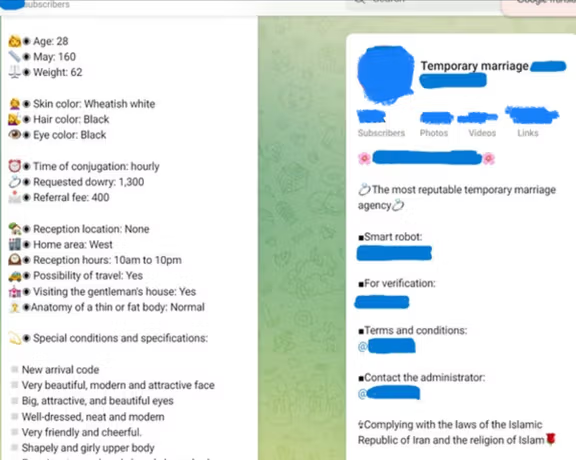
Behind that language lies a structured operation. Clients are matched. Money is transferred through intermediary accounts—typically under male names.
Some users told Iran International that they had even received handwritten contracts and met women after paying.
Yet scams still exist. Some men are strung along with fake profiles and asked for repeated payments—dowries, insurance fees, “pregnancy contingencies”—only to have contact cut off once the money is sent.
One man in Karaj who spoke on condition of anonymity told Iran International: “I sent money three times. Each time there was a new excuse. The last time, they asked for an abortion deposit. Then she vanished.”
The online platforms are not licensed or regulated by the state but are not shut down either. Their visibility on domestic platforms points to at least a passive tolerance from authorities.
Even Fars News, which is close to Iran's Islamic Revolutionary Guard Corps, wrote on the phenomenon on Wednesday but mostly sought to discredit the platforms as a scam aiming to defraud credulous men.
But it also implicitly acknowledged the existence of real actors within the system.
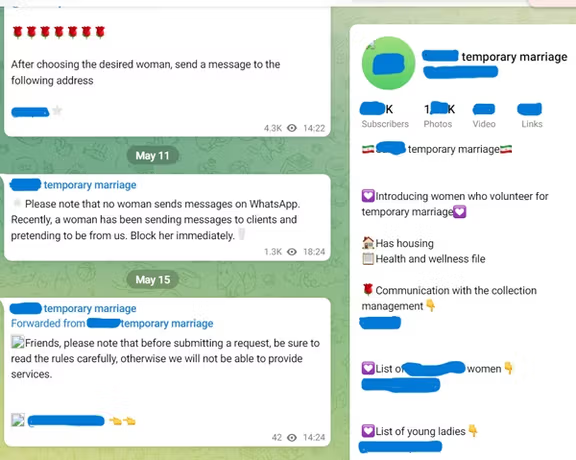
“Our field investigation shows that many of these pages lack any official or legal license and are mostly created for purposes such as fraud, extortion, and even the dissemination of users' personal information,” the outlet wrote.
The use of “many” rather than “all” leaves room for exceptions—an implicit admission that not every channel is fake and that some do involve actual individuals, transactions, and encounters.
An apparent official tolerance of sigheh as a moral buffer against paid sex appears to have opened the door to commodifying women under theological cover. Prostitution is criminalized and punished, yet sigheh remains legal and broadly interpreted—creating a religiously sanctioned loophole.

“Pimping is illegal,” said a Tehran-based legal expert who requested anonymity for security reasons. “But sigheh offers a loophole. If the woman agrees, there’s a contract, and it’s framed as religious—who’s going to prosecute it?”
The line between religiously permitted marriage and outright sexual commerce is not just blurred—it has become a business model. For the Islamic Republic, it is one that hides in plain sight, cloaked in doctrine and fueled by tanking standards of living and deepening poverty.
Far from being limited to scams, the sigheh economy has become a channel for monetizing sexual access under the guise of religious propriety.
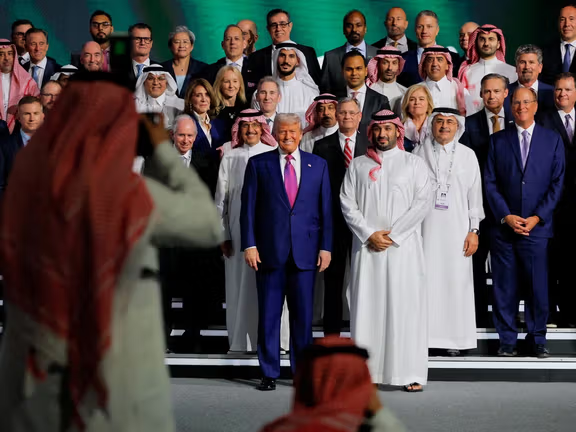
On his tour of Iran’s Arab neighbors, US president Donald Trump lashed out at Tehran while hinting a deal was close—warning and wooing at once, and raising as many questions as he answered about the prospects of his transactional diplomacy.
President Trump arrived in Saudi Arabia on May 13 on the first leg of a four-day, three-country trip to the Middle East that included stops in Qatar and the United Arab Emirates.
The choice of Saudi Arabia for the first state visit of Trump’s second term mirrored that of his first, except this time he did not go to Israel, signaling that the administration is doubling down on its Arabian peninsula partners as key supporters of US regional interests.
Iran was naturally not on the itinerary but ever-present in Trump’s public statements, with the president using a characteristic blend of carrot-and-stick which urged Iranian leaders to take a “new and better path” and warned of “massive maximum pressure” if Tehran “rejects this olive branch.”
Trump expressed his desire to reach a deal with Iran on many occasions, even hinting that a deal was almost agreed. For that to happen, however, Tehran "must stop sponsoring terror, halt its bloody proxy wars, and permanently and verifiably cease its pursuit of nuclear weapons,” he added.
Later, aboard Air Force One, Trump told reporters that Iran had to “make the right decision” about its nuclear program because “something’s going to happen one way or the other” and "we’ll either do it friendly or we’ll do it very unfriendly.”
Arab, Iranian audiences
There are various takeaways for leaders in Iran as well as in its neighboring Arab countries, from Trump’s commentary.
For the latter, Trump’s demand that Iran end its sponsorship of terror and involvement in proxy wars will be welcomed as a signal that any agreement with Tehran might not be narrowly confined to its nuclear program alone, as was the case with the Joint Comprehensive Plan of Action in 2015.
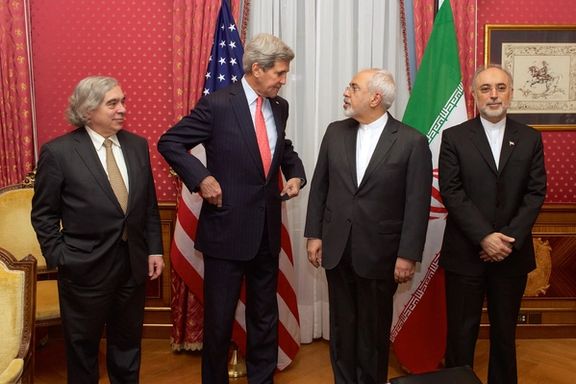
For leaders in Riyadh, Doha and Abu Dhabi - not to mention in Tel Aviv -it was Iran’s regional activities that were as much a priority as its nuclear program, and their exclusion from the negotiations for the 2015 nuclear deal caused alarm in the region.
However, any such optimism in regional corridors of power may be tempered by concern that the president’s unconventional approach to deal-making may create openings for an agreement that gives Trump the optics he desires at the expense of nuts-and-bolts details on specific Iranian commitments.
Deals, details and differences
Comments by Steve Witkoff, Trump’s chief negotiator and one of his closest confidants, in podcast and other appearances, have not given the impression of a details-focused approach to diplomacy, whether in terms of Russia and Ukraine or Iran.
Witkoff and other members of the Trump administration have also sent mixed messages about whether Iran would be able to enrich uranium in any agreement, reinforcing concerns by domestic and regional critics of US engagement with Iran that a new deal may be worse than no deal.
For the leadership in Tehran, beset by economic challenges, energy shortages and geopolitical setbacks that left its regional "Axis of Resistance" weakened, the optics of Trump’s regional procession offer glimpses of opportunity.
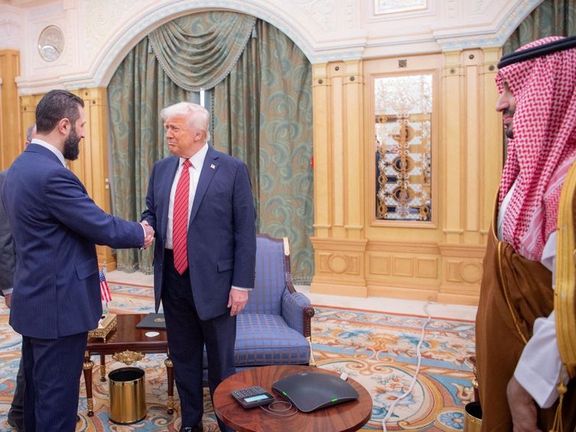
The fact that Trump met with Syria’s new president, Ahmed al-Sharaa, in Riyadh and declared that sanctions on Syria would be lifted was further illustration that Trump is transactional rather than ideological, and willing to take decisions that break the mold of conventional American policy thinking.
This was underscored in Trump’s remarks in Riyadh on May 13 when he slammed the failures of generations of western interventionists and neocons in the Middle East who “told you how to do it, but they had no idea how to do it themselves” and, he argued, did far more damage than good.
In making these comments and receiving al-Sharaa, Trump has shown himself willing to break free of traditional constraints on US policymaking in the region, at least on the surface, and this may yet extend to Iran.
Unclear outlook
There are nevertheless multiple uncertainties for Iranian officials as they begin to digest the outcomes of Trump’s visit to the Middle East and assess the implications, both short- and long-term, for Tehran.
The plethora of major deals signed in Saudi Arabia, Qatar, and the UAE have cemented these countries’ deep and longstanding ties with the US across the defense and security, economic, and energy spectrum.
Any concerns in the region of US disengagement from the Middle East may be dissipated by the sight of Trump bestowing such significance on the region, in stark contrast to the disdain with which the administration has treated its formal allies in Europe and North America.
And yet, if Trump is to reap the benefits of the hundreds of billions of dollars of planned investments into the US, he will likely return from his trip with a conviction that the pledges, and the returns, require stability and would be jeopardized by any conflict with Iran.
This not only plays into the de-risking and de-escalatory approach that Iran's energy-rich Arab neighbors have taken since 2020 but may also fortify Trump’s desire to burnish his credentials as a peacemaker in the explosive region.